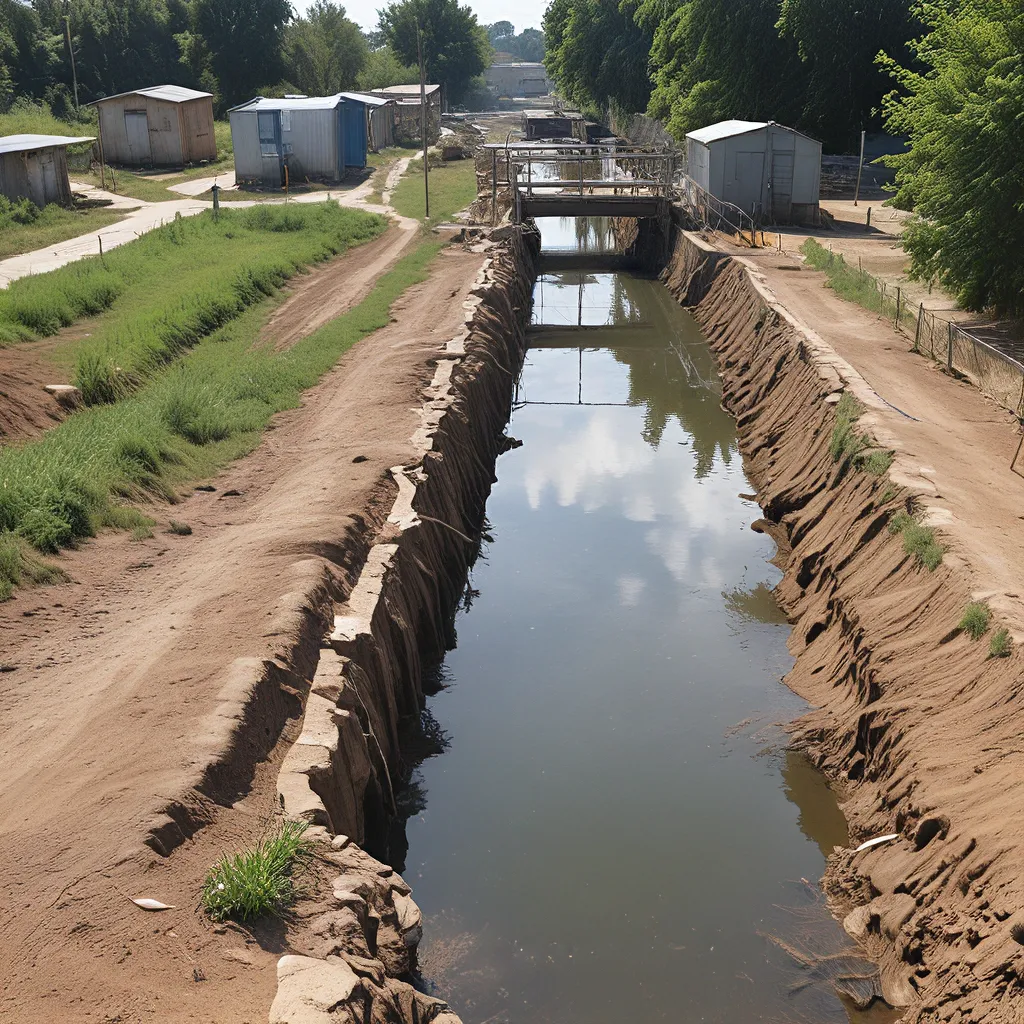
As someone who’s passionate about environmental sustainability, I’ve always been fascinated by the critical role that wastewater treatment plays in achieving the United Nations’ Sustainable Development Goals (SDGs). It’s a topic that’s near and dear to my heart, and I’m excited to dive in and explore it with you.
The SDG Connection: Unlocking Sustainable Water Management
At the heart of this issue is SDG 6: Clean Water and Sanitation. This ambitious goal sets out to ensure universal and equitable access to safe and affordable drinking water for all by 2030, as well as adequate and equitable sanitation and hygiene. But this isn’t just about providing clean water – it’s also about improving water quality, reducing pollution, and increasing recycling and safe reuse of wastewater globally.
The UN’s SDG 6 data reveals that currently, only around 75% of the global population uses safely managed drinking water services, and a staggering 2 billion people lack access to basic sanitation services. That’s a sobering statistic, but it also highlights the immense potential for wastewater treatment to be a game-changer in achieving these lofty goals.
Wastewater: The Untapped Resource
You know, I used to think of wastewater as just… well, waste. But the more I’ve learned about it, the more I’ve come to see it as a valuable resource that we can’t afford to squander. In fact, properly treated wastewater can be reused for a variety of purposes, from agricultural irrigation to industrial processes and even replenishing our freshwater supplies.
The data shows that currently, only about half of the world’s domestic and industrial wastewater undergoes safe treatment. That means a lot of potentially useful water and nutrients are being lost, not to mention the environmental damage caused by untreated effluent.
But the good news is that there are innovative wastewater treatment technologies and strategies being developed, like Alpha Wastewater’s comprehensive solutions, that can help us turn this challenge into an opportunity. By investing in these kinds of advanced treatment systems, we can recover valuable resources, protect our ecosystems, and make significant progress towards the Sustainable Development Goals.
The Triple Bottom Line: People, Planet, Profit
When it comes to wastewater treatment, it’s not just about the environmental benefits – there are also significant social and economic implications that we need to consider.
For one, ensuring access to safe, affordable sanitation is crucial for public health and dignity, especially for marginalized communities. Poorly managed wastewater can lead to the spread of waterborne diseases, which disproportionately impact the most vulnerable populations. Proper treatment and equitable distribution of water resources can help address this pressing issue.
But the benefits go beyond just social impact. Effective wastewater management can also boost economic productivity by providing reliable water sources for agriculture, industry, and other commercial activities. And by recovering and repurposing valuable resources from treated wastewater, we can create new revenue streams and job opportunities, further supporting sustainable development.
It’s a true triple bottom line: people, planet, and profit. When we invest in wastewater treatment, we’re not just protecting the environment – we’re also improving lives and livelihoods in tangible, measurable ways.
Navigating the Complexities of Wastewater Treatment
Now, I’ll admit that the world of wastewater treatment can be a bit complex and technical. There are all sorts of regulations, technologies, and best practices to consider, and it can be easy to get bogged down in the details.
But the way I see it, the key is to focus on the big picture – the overarching goals and the transformative potential of these systems. Sure, there are debates and uncertainties around things like optimal treatment methods, water quality standards, and the long-term impacts of reuse. Some experts suggest that we may need to rethink our approach to wastewater management to truly maximize its benefits.
But that’s all part of the exciting journey of innovation and progress. By staying curious, embracing new technologies, and collaborating across sectors, I believe we can unlock the full potential of wastewater treatment to support the Sustainable Development Goals.
The Road Ahead: Towards a Sustainable Water Future
As I wrap up, I can’t help but feel a sense of cautious optimism about the future of wastewater treatment and its role in sustainable development. It’s a complex challenge, to be sure, but one that I believe we’re more than capable of tackling.
What’s clear to me is that wastewater can no longer be seen as just a waste product – it’s a vital resource that we need to harness and manage with care. By investing in advanced treatment systems, promoting water conservation and reuse, and addressing the social and economic dimensions of this issue, we can make significant strides towards achieving SDG 6 and building a more sustainable water future for all.
So, I encourage you to stay informed, get involved, and be part of the solution. Whether it’s supporting innovative companies like Alpha Wastewater, advocating for policy changes, or simply being more mindful of your own water usage, every effort counts. Together, I believe we can make a real and lasting impact on the health of our planet and the well-being of our communities.